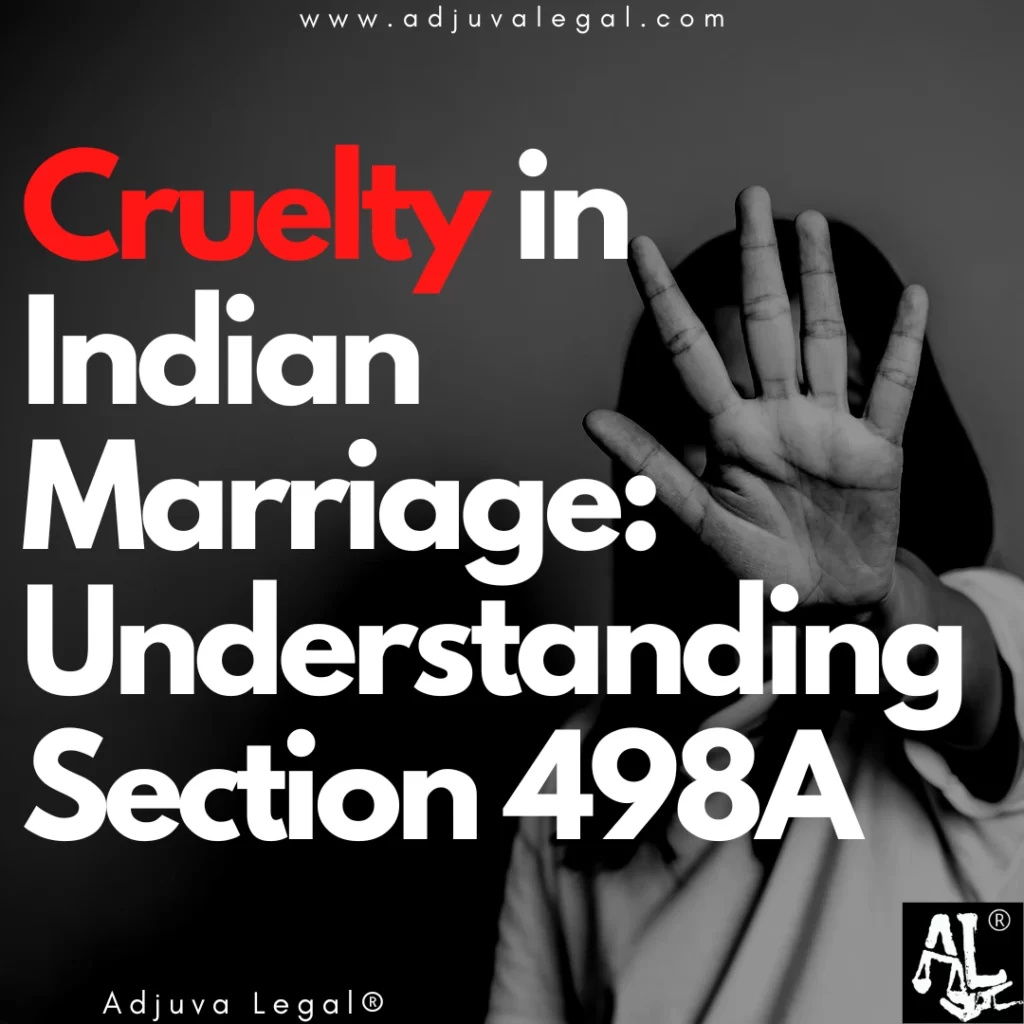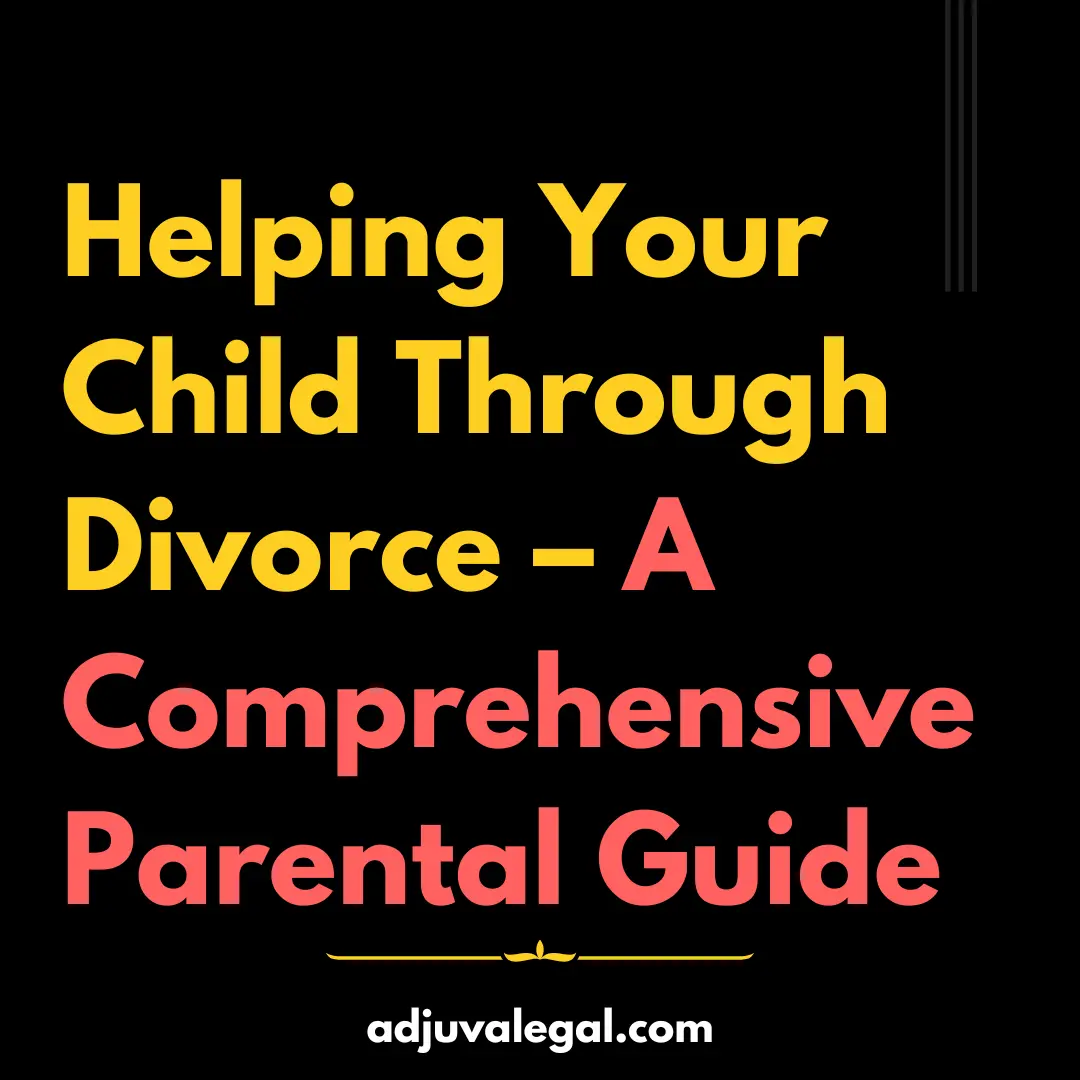Understanding Section 498A of the Indian Penal Code
Definition of Cruelty under Section 498A
In the year 1983, Section 498 A was included in the Indian Penal Code to curb the incidents of cruelty. The section covers “Husband or relative of husband of a woman subjecting her to cruelty — Whoever, being the husband or the relative of the husband of a woman, subjects such woman to cruelty shall be punished with imprisonment for a term which may extend to three years and shall also be liable to fine.” Additionally, Section 113A of the Indian Evidence Act, 1872 states that if a married woman unnaturally dies within 7 years of marriage court will presume that she was subject to cruelty.
Court of Cognizance under Section 498A
The court is defined under section 198A as “No Court shall take cognizance of an offence punishable under Section 498-A except upon a police report of facts which constitute a such offence or upon a complaint made by the person aggrieved by the offence or by her father, mother, brother, sister or by her father’s or mother’s brother or sister. The Court can also take cognizance if the complaint is made by any other person related to her by blood, marriage or adoption with Court’s permission.”
Interpretation of Cruelty in Various Judgements
The court in various judgements interpreted several other conducts as cruelty.
No Res Judicata on Cruelty
In the case of S. v. V. Justice GK Ilanthiraiyan of Madras High Court stated that if the cause of action of cruelty is a continuing offence. The divorce petition will not be affected by res judicata. ((S. v. V., 2023 LiveLaw (Mad) 42))
Jurisdiction of Filing the Case
The wife has the right to leave the matrimonial home after commission of cruelty but sometimes extends to mental agony faced in the paternal home for the same reason. Eventually, the woman sometimes leaves her paternal home also. Hence, it was held in Smt. Geeta Tiwari & Anr. v. State of Orissa & Anr., that the jurisdiction of filing case will be where that wife is residing after leaving her matrimonial home. ((Smt. Geeta Tiwari & Anr. v. State of Orissa & Anr, 2023 LiveLaw (Ori) 15))
Consideration of Contradictory Yet Consistent Dying Declaration
The Telangana High court in the case of K. Rajkumar v. State of A.P. opined that if the deceased woman has made a subsequent dying declaration which ever contradictory in nature but indicates the commission of cruelty in each one. Then, the dying declarations will be considered continuing declarations. ((K. Rajkumar v. State of A.P, 2022 LiveLaw (Tel) 96))
Cruelty Against Husband
The Punjab and Haryana High Court in the case of Karamjit Singh v. Davinder Kaur ((Karamjit Singh v. Davinder Kaur, FAO-M-190 of 2010 (O&M) and FAO No. 3554 of 2016)) stated that if a wife persistently taunts the polio-stricken husband for his disability, it will be counted as cruelty. Pushing him on the ground and knowing that he will be unable to overcome the situation because of his disability is a grave conduct of cruelty. It will fall under section 13 of the Hindu Marriage Act, of 1955.
Conditions for Cruelty Under 498A
Conditions for cruelty under 498A stated in U. Suvetha v. State ((U Suvetha v. State, 2009 6 SCC 757))
-
- The victim must be a married woman.
-
- She must have gone through cruelty and abuse.
-
- The act must be done by the husband or any relative of the husband
-
- Subsequent marriage as cruelty
Subsequent Marriage as Cruelty
The Bombay High Court reiterated in the case of Atul S/o Raju Dongre and Ors. v. State of Maharashtra and Anr., ((Atul S/o Raju Dongre and Ors. v. State of Maharashtra and Anr., Criminal Application (APL) No. 1287/2022)) that if the marriage is in existence and the husband marries another woman without the permission or agreement of the wife, it will be termed as cruelty. The conduct leaves the wife in mental agony which will be termed mental torture.
Position of Alleged Girlfriend
Bombay High Court in a recent case cited U. Suvetha v. State where it was held that a girlfriend or a concubine cannot be considered as relative within the meaning of Section 498A. Hence, the court reiterated that an alleged girlfriend cannot be termed as an accused in the case of cruelty.
Position of Transgender as Complainant
In the case of Matam Gangabhavani, vs State Of Andhra Pradesh, the Andhra Pradesh High Court ((Matam Gangabhavani, vs State Of Andhra Pradesh, WRIT PETITION NO.16770 OF 2019)) has opined that the word ‘bride’ under section 5 includes the transwoman if both the partners are Hindu. Hence, a transwoman will become a complainant if any conduct of cruelty has been inflicted upon her. Impairing her from filing a complaint against the wrong will impair her right to equality entrusted by the Constitution of India.
Tarnishing of Man’s Reputation
In the case of Devesh Yadav v. Meenal, Punjab and Haryana High Court ((Devesh Yadav v. Meenal, 2022 SCC OnLine P&H 902)) stated that if a wife attempts or leads to tarnish the image or destroy the career of her husband by complaining his seniors will be under the ambit of mental cruelty.
Conclusion
Cruelty is covered under Indian Penal Code as well as Hindu Marriage Act. Indian Penal Code covers woman as a victim whereas Hindu Marriage Act, 1955 include all genders. In the series of cases, the court of law has opined a plethora of interpretations touching various aspects of lives related to cruelty. The court has the duty to keep the pace of law persistently marshalling with the leading evolution in society.
Author – Khushi Shukla, a student of Indore Institute of Law.
Disclaimer: The opinions expressed within this article are the personal opinions of the author. The facts and opinions appearing in the article do not reflect the views of Adjuva Legal and Adjuva Legal does not assume any responsibility or liability for the same.
FAQs on Cruelty in India
Section 498A of the Indian Penal Code was introduced in 1983 and it deals with “Husband or relative of husband of a woman subjecting her to cruelty.” It punishes anyone who subjects a married woman to cruelty with imprisonment for up to three years and a fine.
A complaint under Section 498A can be made by the person aggrieved by the offence, her father, mother, brother, sister, father’s or mother’s brother or sister, or any other person related to her by blood, marriage, or adoption. The court can also take cognizance of the complaint if made by any other person with the court’s permission.
No, a girlfriend or a concubine cannot be considered a relative within the meaning of Section 498A and hence cannot be considered an accused in a case of cruelty.
In various judgements, the court has interpreted several conducts as cruelty, including taunting a disabled husband for his disability, subsequent marriage without the wife’s permission or agreement, and persistent mental agony faced by the wife.
Yes, a transwoman can file a complaint under Section 498A if she is subject to cruelty. The Andhra Pradesh High Court has opined that the word ‘bride’ under Section 5 of the act includes a transwoman if both partners are Hindu.








